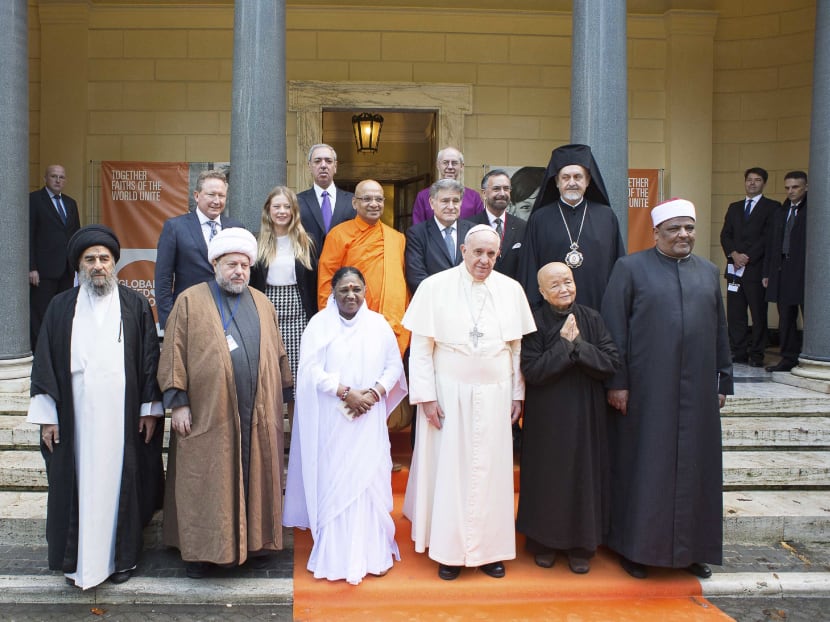Pope’s anti-slavery drive gets multifaith support
VATICAN CITY — Religious leaders from a half-dozen faiths have signed on to a new Vatican initiative to end modern-day slavery by 2020, declaring that human trafficking, forced labour and prostitution are crimes against humanity.

Pope Francis (2nd right) poses with religious leaders during a meeting at the Pontifical Academy of Sciences at the Vatican on Dec 2, 2014. Photo: Reuters
VATICAN CITY — Religious leaders from a half-dozen faiths have signed on to a new Vatican initiative to end modern-day slavery by 2020, declaring that human trafficking, forced labour and prostitution are crimes against humanity.
Pope Francis and the Anglican archbishop of Canterbury Justin Welby were joined today (Dec 2) by the Hindu guru Mata Amritanandamayi, known as Amma, as well as Buddhist, Jewish and Shiite and Sunni Muslim representatives for a signing ceremony of a joint declaration against modern slavery.
The declaration commits the signatories to do everything in their power and within their faith communities to work to free the estimated 35 million people enslaved across the world by 2020.
Pope Francis has made eliminating human trafficking and modern-day slavery one of the key priorities of his pontificate, instructing the Pontifical Academy of Sciences to focus on it in their academic conferences and studies. Earlier this year, the Vatican announced the Global Freedom Network, a multifaith initiative to eradicate slavery by encouraging governments, businesses, educational and faith institutions to rid their supply chains of slave labour.
The head of the pontifical academy, Bishop Marcelo Sanchez Sorondo, said Pope Francis’ concern stems from both the Gospel and his ministry to the residents of the slums of Buenos Aires when he was archbishop.
“Here he came into contact with the drug situation, the situation of the excluded — and naturally the most dramatic form of exclusion is slavery, which is forced labour and prostitution,” Bishop Sanchez Sorondo said in an interview ahead of the ceremony. AP






